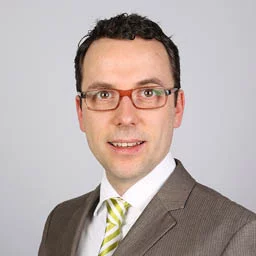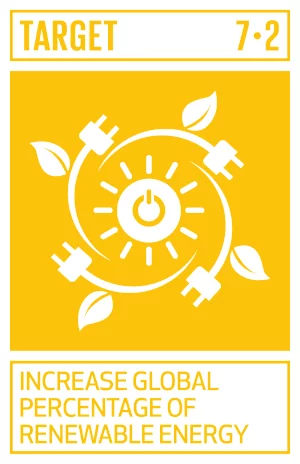Green heat for Mannheim and the region
Warm water and heating in houses and apartments currently account for more than one third of Germany’s CO2 emissions. The heat turnaround is therefore decisive in making a success of the energy turnaround.
In view of this, MVV is pressing ahead with new green energies and technologies. We are designing cutting-edge energy infrastructure that can serve as a blueprint for smart cities in Germany and across the whole of Europe. And we are reinventing district heating by building on the broadest green electricity and heat portfolio available at any German energy company. This starts with residual heat from waste incineration and ranges via regenerative energy sources such as biomass, biomethane and river heat through to new possibilities in the areas of geothermal energy, biogenic sewage sludge incineration and waste industrial heat.
As of today, climate-friendly energy forms already cover up to 30 percent of annual heating requirements in Mannheim and the region. MVV’s district heating grid has a length of 592 kilometres and supplies not only Mannheim, but also Heidelberg, Schwetzingen, Brühl, Ketsch and Speyer. In Mannheim alone, more than 60 percent of households, corresponding to 120,000 households, use environmentally-friendly district heating. We will further increase the already high share of district heat.
In 2024, we will complete the second stage of expansion in the heat transition in Mannheim when we have connected our phosphorus recycling plant and our biomass CHP plant to the district heat system. We can then supply more than 60 percent of households and industrial and commercial customers in Mannheim with green heat. And then we will start working on the third stage to achieve 100 percent green heat. It includes green technologies such as geothermal energy, additional river heat pumps, the use of additional industrial waste heat, electrode boilers or biomethane cogeneration plants.
In Mannheim and the region, as well as in Offenbach, we are fully converting our district heat to 100 % green energy sources in the current decade. By 2035, we will reach 100 % green district heat generation in the whole of the Group, including Kiel. To achieve this, we are relying on a broad-based generation portfolio.
With our green heat, we will be able to guarantee a reliable supply of heat even after the phasing out of coal. District heating is and will remain an indispensable component of our sustainable and forward-looking heating concept.
New heat sources to make a success of the heat turnaround
Using waste to generate electricity and heating energy is a key factor in making a success of the energy turnaround. We are one of the leading companies in Germany in this field and operate a total of eight energy from waste plants in Germany and the UK.
We operate our waste incineration plant on Friesenheimer Insel in Mannheim using highly efficient cogeneration. We use the resultant heat to supply steam to neighbouring industry and feed it into the district heating grid in Mannheim and the region. The next step is the biomass power plant, which will feed in heating energy from 2024. Not only that, we will further increase the overall heating energy yield from our energy plant portfolio by working with innovative energy efficiency technologies. This way, we will further develop the Friesenheimer Insel location into a valuable component of the energy turnaround and of a sustainable recycling-based economy for Mannheim and the Rhine-Neckar metropolitan region.
At Kieler Förde, the new gas-fired CHP plant replaced the coal-fired joint power plant (Gemeinschaftskraftwerk – GKK) in 2020. In combination with a heat storage facility and a power-to-heat plant, the power plant can react with the utmost flexibility to changing needs on the energy market. The use of a large-scale heat pump that draws environmental heat from the fjord is also planned in Kiel. At EVO, the volume of heat coupled out from the energy from waste plant has been increased in recent years, meaning that more than half of Offenbach’s district heating now comes from green energy sources.
We also aim to take advantage of our favourable geographical location to supply heat to people – drawing both on river heat from the Rhine and on geothermal heat from the Rhine Rift. We launched operations with our first river heat pump in October 2023, using the river water of the Rhine as a climate-neutral heat source to generate green district heating with the help of a river heat pump. And for the future use of geothermal energy, prospecting is currently underway with Geohardt, a joint venture managed with EnBW, in sections of the Upper Rhine Rift between Mannheim and Karlsruhe.




